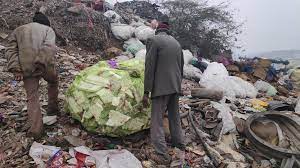Key Challenges in Accessing Schemes by Waste pickers
In Bangalore, it has been observed that migrants constitute approximately 60% of the total waste pickers, with a noteworthy 90% of these migrants belonging to the Muslim community. A significant proportion of migrant waste pickers are categorized as 'transitory' waste pickers, indicating that they initially engage in waste picking as their primary vocation and subsequently transition to other fields such as construction, metro-related work, or employment as security guards. This trend highlights the dynamic and evolving nature of the waste picker population, illustrating their movement across various sectors over time. The discussions with our partners have provided valuable context and understanding of the demographic composition and occupational trajectories of waste pickers in the Bangalore region.
Waste pickers face a notable limitation in terms of entitlements and available schemes. When migrating to cities, waste pickers typically carry only basic documentation such as Aadhar cards, bank account details, and voter IDs. These essential documents serve as their primary identification and verification tools. However, the challenge lies in the limited awareness among waste pickers regarding the various entitlements and benefits they are eligible for. Due to this lack of awareness, waste pickers may not fully access the available schemes and entitlements that could significantly contribute to their well-being.
Waste Picker Cards: Currently, no new cards are being issued, with the last batch of 10,000 cards distributed in Bangalore around 2012, which are now obsolete. However, the Center for Development (CfD) has provided ID cards to waste pickers, featuring their addresses. This initiative has resulted in increased income, facilitated access to factories, and reduced instances of harassment.


No Comments